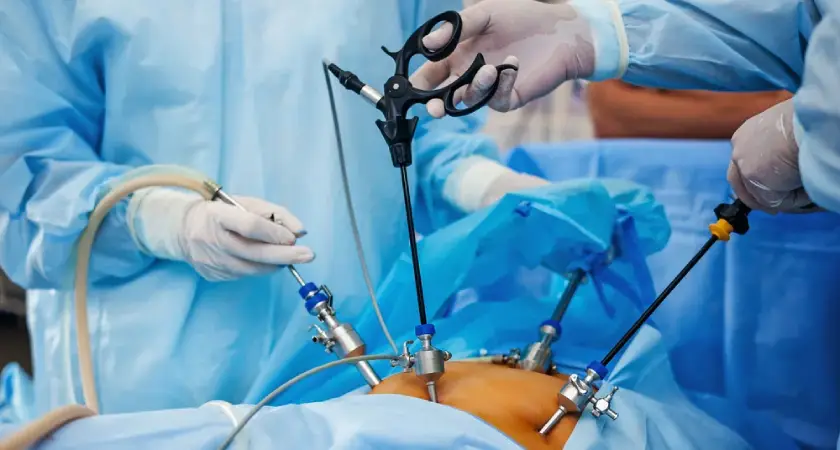Have you ever wondered – is laparoscopic surgery completely safe? Many people choose it because of smaller cuts, faster recovery, and less pain. But like any medical procedure, there can be some risks of laparoscopic surgery and side effects. Knowing these risks in advance helps you prepare better and make informed decisions.
What Is Laparoscopic Surgery?
Laparoscopic surgery is also called keyhole surgery. Instead of making a big cut, the surgeon makes tiny incisions and uses a camera with special instruments to perform the surgery. It is commonly done for hernia, gallbladder stones, appendix removal, colon issues, and even cancer surgeries. Because it is less invasive, most patients recover faster compared to open surgery.
General Risks of Laparoscopic Surgery:
Like all operations, laparoscopic procedures also carry some risks. These include:
- Infection at the incision site
- Bleeding during or after the procedure
- Anaesthesia-related side effects, such as nausea or dizziness
Specific Complications of Laparoscopic Surgery:
Some complications may happen depending on the surgery type:
- Organ or tissue injury if the instruments touch nearby organs
- Hernia at the incision site where the cut was made
- Adhesions or scar tissue formation inside the abdomen
- Appendix laparoscopic surgery risks include pain, swelling, or, rarely, leakage from the intestine.
- In some cases, doctors may need to convert laparoscopic surgery to open surgery for safety.
Rare but Serious Complications:
Though uncommon, certain serious complications of laparoscopic surgery may occur:
- Blood clots (DVT) in the legs that can travel to the lungs
- Damage to blood vessels leading to internal bleeding
- Breathing issues due to carbon dioxide gas used during the procedure
Who Is at Higher Risk?
Not all patients face the same level of risk. Some conditions increase the chances of complications:
- Patients who are obese
- People with diabetes, heart, or lung problems
- Those with previous abdominal surgeries where scar tissue is already present
How to Reduce Risks of Laparoscopic Surgery:
The good news is that most risks can be minimised with proper care:
- Choose an experienced surgeon – this reduces surgical errors
- Follow all pre-surgery instructions, like fasting or stopping certain medicines.
- Post-surgery care – proper rest, diet, and timely follow-up visits
Conclusion:
So, is laparoscopic surgery safe? Yes, for most patients, it is safe, effective, and allows faster healing compared to traditional surgery. However, like any medical procedure, there are possible side effects of laparoscopic surgery. By choosing an expert like Dr. Lalit Banswal laparoscopic surgeon Pune, you reduce these risks and ensure a smoother recovery.

